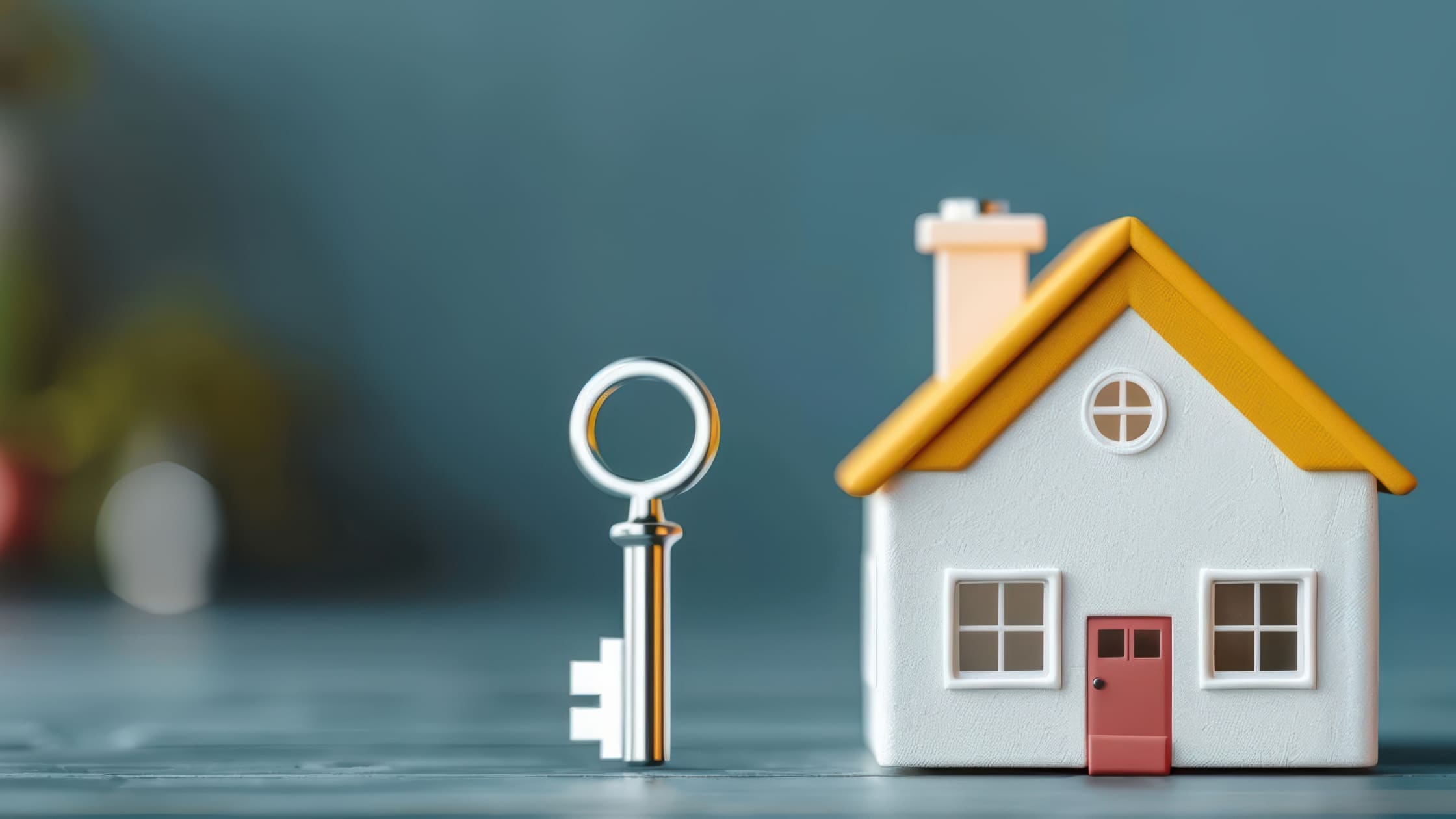How Much House Can You Afford in Florida?
Start Your Learning Journey Today
Explore our comprehensive resources to become a Homeowner! Make informed descitions, that’s your power!
One of the first questions to ask is, “How much house can I afford?” Determining a realistic budget is crucial before you start house hunting. In this guide, we’ll break down the factors that determine how much home you can comfortably afford in Florida, with a focus on Central Florida. We’ll also share tips tailored for first-time homebuyers and those relocating to Florida, so you can approach the home buying process with confidence.
Factors That Determine Your Home Affordability
Income and Debt (The 28/36 Rule): A common rule of thumb in real estate is the 28/36 rule. This guideline suggests you should spend no more than 28% of your gross monthly income on housing costs, and no more than 36% on total debt payments (including your mortgage and other loans) Lenders use this as a benchmark when evaluating mortgage applications. For example, if your household brings in $5,000 a month, you’d aim to keep your monthly home payment around $1,400 or less. Staying within these limits helps ensure you can comfortably pay your mortgage and still cover your other expenses.
Annual Income Multiplier: Another way to estimate affordability is by looking at your annual income. In Central Florida, some experts suggest you can afford a home priced up to roughly 3.75 times your gross annual income. This means a household earning $80,000 per year might afford a home around $300,000. (By comparison, in some higher-cost areas, lenders might stretch that ratio a bit higher.) Keep in mind this is a rough estimate, your actual affordability also depends on factors like interest rates and personal debt. If interest rates are high or you carry significant debts (car loans, student loans, etc.), the amount you can borrow may be less.
Debt-to-Income Ratio (DTI): Closely related to the 28/36 rule, your debt-to-income ratio is the percentage of your income that goes toward debt payments. Most lenders prefer a DTI at or below 43% for a home loan approval, and many recommend staying around 36% or lower for a comfortable budget5. If you have a high DTI, consider paying down some debts before taking on a mortgage. Reducing credit card balances or car payments can improve your ratio and potentially increase how much house you can afford.
Credit Score and Interest Rates: Your credit score plays a big role in affordability. A higher credit score can qualify you for lower interest rates, which means a lower monthly payment for the same loan amount. Even a 1% difference in the mortgage interest rate can significantly change your monthly payment. For instance, at a 6.5% interest rate your payment will be higher than at 5.5%, so maintaining good credit (and shopping around for the best rate) can effectively increase your affordable price range. Florida’s mortgage rates in recent years have averaged around the mid-6% range but they fluctuate with the market. Improving your credit before buying can help you lock in a better rate and afford more house for the same budget.
Local Cost of Living: Don’t forget that Florida’s cost of living and wages in the area will influence what feels “affordable.” Central Florida’s housing prices are slightly more affordable compared to South Florida’s hot markets. As of late 2024, the median home price in the Orlando metro area was about $380,000, which is a touch below the statewide median of roughly $405,000. These figures mean if you’re an average buyer in Central Florida, you might expect to spend around that price for a typical home. Of course, many homes cost less or more than the median – your personal affordable range could be well under or above these numbers depending on your situation. The key is to use these figures as a reference point and then tailor it to your finances.
Budgeting for All Homeownership Costs in Florida
Calculating how much house you can afford isn’t just about the sticker price of the home – you also need to budget for the ongoing costs of homeownership in Florida. These additional expenses can impact what you truly can afford month-to-month:
- Property Taxes: Florida property taxes vary by county, but as a rule of thumb you might pay around 1% of your home’s value per year in property tax. For a $300,000 home, that’s about $3,000/year (or $250/month) toward taxes. Some counties in Central Florida may be a bit lower or higher, but be prepared for this cost as part of your monthly escrow payment (if your lender escrows taxes and insurance).
- Homeowners Association (HOA) Fees: Many communities in Central Florida – from suburban neighborhoods to condos and townhomes – have HOA fees. These can range from under $100 a month in a small community to several hundred dollars in neighborhoods with extensive amenities (like gated entrances, clubhouses, or lawn maintenance). Always factor HOA dues into your affordability calculation if you’re considering a home with an association.
- Maintenance and Utilities: Florida’s climate might reduce some costs (for example, you won’t have hefty heating bills in winter), but you’ll likely spend more on air conditioning most of the year. Budget for higher summer electric bills to keep your home cool. Additionally, set aside funds for routine home maintenance. Florida’s sun, heat, and occasional storms can wear on a property – roofs, AC systems, and pools (if your home has one) will require upkeep. A common suggestion is to allocate 1% of the home’s value annually for maintenance. So, a $300,000 home might need about $3,000 per year ($250 a month) in maintenance and repairs on average. Some years you’ll spend less, but you should be financially prepared for the years when an AC unit needs replacing or a roof needs repair.
- Closing Costs and Moving Expenses: Don’t forget the upfront costs when calculating what you can afford. In Florida, closing costs (including lender fees, title insurance, etc.) typically run about 2–5% of the purchase price. On a $300,000 home, that could be around $6,000–$15,000 due at closing. If you’re a first-time buyer or relocating, also consider your moving expenses and any immediate costs after moving in (furnishings, minor fixes, utility deposits, etc.). While these one-time costs don’t affect your monthly affordability, they do require cash on hand. Make sure you don’t deplete your savings entirely on the down payment – you’ll want a cushion for these expenses and an emergency fund for the unexpected.
By accounting for all of these homeownership costs in your budget, you’ll get a true picture of what price range is comfortable. A house isn’t affordable if you can barely cover the mortgage and then struggle with insurance or taxes. It’s better to choose a slightly less expensive home and have breathing room in your budget, than to be “house poor” with a dream home that leaves you financially stressed.

The Impact of Your Down Payment
Your down payment affects both your home affordability and your monthly payments. In general, making a larger down payment allows you to afford more house, because it reduces the loan amount and your monthly payment. It can also secure you better loan terms. For example, putting down 20% or more will let you avoid private mortgage insurance (PMI) on conventional loans, saving you a significant extra monthly feeb Not everyone can afford 20% down – especially first-time buyers – but even an extra few percent can make a difference.
Consider a quick example: for a $300,000 home, a 20% down payment is $60,000, resulting in a $240,000 mortgage. If you only put 5% down ($15,000), your loan would be $285,000 – meaning higher monthly principal and interest payments, plus PMI added to your bill. In one scenario given by Florida mortgage experts, a 5% down loan on $300k might have a monthly principal and interest around $1,200, whereas 20% down could drop it closer to $1,000 (not including taxes and insurance). Over decades, the larger down payment yields big savings on interest paid.
Of course, saving for a down payment is often the biggest hurdle for buyers. The good news for Florida homebuyers is that there are low down payment loan options and assistance programs available. FHA loans require only 3.5% down, and some conventional loans allow as little as 3% for qualified buyers. If you’re a veteran or buying in certain rural areas, VA and USDA loans can even offer 0% down financing Florida also has state and local down payment assistance programs aimed at first-time buyers. For instance, the Florida Assist program offers up to $10,000 in down payment assistance for those who qualify. These programs often have income and purchase price limits, but they can bridge the gap if you have stable income to afford a home but are short on upfront cash.
Tips for First-Time Home Buyers in Florida
If you’re a first-time homebuyer in Florida, welcome to an exciting journey! Florida’s market can be competitive, but with the right preparation, you can find a home that fits your budget and needs. Here are some tips to get you started:
- Assess Your Finances Thoroughly: Take a hard look at your income, expenses, and savings. Create a monthly budget that factors in a future mortgage payment, property taxes, insurance, and other costs we discussed. This will tell you how much house payment you can handle without strain. Online mortgage affordability calculators can help by crunching the numbers based on your income and debts. And don’t forget to check your credit score – if it’s on the low side, consider spending a few months to improve it (pay down debt, correct any errors on your report) before you apply for a loan.
- Get Pre-Approved for a Mortgage: Mortgage pre-approval is almost a must in today’s market. When you get pre-approved, a lender evaluates your finances and credit and tells you the maximum loan amount you qualify for. This not only lets you know your price range, but also shows sellers you’re a serious buyer. In fact, many real estate agents in Florida will ask if you’re pre-approved before showing homes, and sellers are more likely to accept an offer from a pre-approved buyer. Shop around with a few lenders or use a reputable mortgage broker to find the best rates and loan options for your situation. Getting pre-approved will create a clear budget framework and prevent you from falling in love with a house you can’t afford.
- Explore First-Time Buyer Programs: As mentioned, Florida offers various programs to help first-time buyers. The Florida Housing Finance Corporation partners with lenders to provide down payment and closing cost assistance loans, often up to $10,000 for those who qualify. Additionally, check locally – many cities and counties (for example, the City of Orlando’s Down Payment Assistance Program) have grants or second-mortgage programs for new buyers. These programs can lower your upfront costs or even reduce your mortgage interest rate. Make sure to research the requirements (income limits, home price limits, education courses, etc.) early on, so you can incorporate any assistance into your home-buying plan.
- Prioritize Your Needs vs. Wants: With your budget in hand, make a list of “must-haves” and “nice-to-haves” for your first home. It’s easy to get carried away looking at beautiful homes a bit above your range, but remember to stay realistic about what you can afford. In Central Florida especially, you’ll find a range of options from new suburban homes to older houses with character. You might not get everything on your wishlist in your starter home – and that’s okay. Focus on the fundamentals first: a solid house in a location you like, that you can comfortably afford. Cosmetic upgrades can come later as your budget allows.
- Work with an Experienced Realtor: A knowledgeable real estate agent is an invaluable asset for first-time buyers. They can help you find homes in your price range and negotiate the best deal. Florida’s market has its nuances (for example, understanding flood zones, homeowners insurance hurdles, or negotiating seller-paid closing costs). An agent who knows the Central Florida area well can guide you to neighborhoods that fit your budget and lifestyle. They’ll also ensure you don’t overpay for a home by providing comparables and advice during the offer process. Tip: Look for a buyer’s agent who is patient, answers your questions, and has experience with first-time buyers’ needs.
- Plan for the Long Term: While buying your first home is exciting, remember it’s a long-term commitment. Think about your future in Florida – is your job stable? Do you plan to stay in the area for at least a few years? (Buying makes more sense if you’ll be in one place for a while, as it gives time for your home equity to grow.) Also consider future expenses: if you’re planning a family, or might need to purchase a new car, factor those into your budget planning. Leave yourself some financial wiggle room. You want to enjoy your new home, not feel trapped by payments. It’s perfectly fine to start with a smaller or less expensive home and move up later as your financial situation grows.
By following these steps, first-time buyers in Florida can avoid common pitfalls and set themselves up for homeownership success. The key takeaway is to know your budget inside and out – and stick to it. With a clear price range in mind, you can house-hunt with confidence and focus on finding the right home rather than worrying about money.

Next Steps: Get Expert Guidance and Move Forward
Calculating how much house you can afford is a foundational step in the home buying journey. It might seem daunting at first, but by breaking it down – looking at your income, debts, down payment, and Florida-specific expenses – you can arrive at a comfortable price range. Once you have that number (or range), the fun part begins: searching for homes that fit your budget and needs.
Keep in mind that affordability isn’t static. Interest rates, home prices, and your personal financial situation can change. It’s wise to give yourself some cushion. For example, if you determine you can afford up to a $400,000 home, you might start your search looking at homes in the $350,000s or $375,000s. This way, you have room to bid higher in a competitive market or handle unexpected costs without exceeding your comfort level.
Finally, consider speaking with a local real estate professional for personalized guidance. Every buyer’s situation is unique, and rules of thumb only go so far. A seasoned agent or mortgage advisor can provide a detailed analysis based on current market conditions in your part of Florida. They can help answer questions like, “Will buying now stretch my budget too thin?” or “Should I rent a bit longer and save more?” At RE/MAX Heritage here in Central Florida, we have helped many first-time buyers and relocating families navigate these exact questions. Our goal is to ensure you feel confident and informed at every step. We’re happy to discuss your budget, connect you with trusted local lenders for pre-approval, and ultimately find a home that fits both your Florida lifestyle and your wallet.
Bottom line: Knowing how much house you can afford in Florida will empower you to house-hunt realistically and avoid financial stress. Do the homework upfront – calculate your ratios, factor in all the costs, get pre-approved – and you’ll be in a strong position to buy a home you love within your means. When you’re ready, reach out to our team for expert help on turning that plan into reality. We’re here to make your Florida home buying experience a successful and enjoyable adventure.
About RE/MAX Heritage
RE/MAX Heritage has been a cornerstone of the Central Florida real estate market, committed to excellence and integrity. Our mission is to provide unparalleled service to our clients, guiding them through every step of their real estate journey. With a team of dedicated professionals, we strive to exceed expectations and build lasting relationships. Our commitment to the community and passion for real estate drives us to deliver the best possible outcomes for our clients.
Get Expert Real Estate Advice
Ready to explore your real estate options in Central Florida? Contact our office today to learn more or to schedule a personalized consultation with our experienced team. We’re here to guide you every step of the way.



